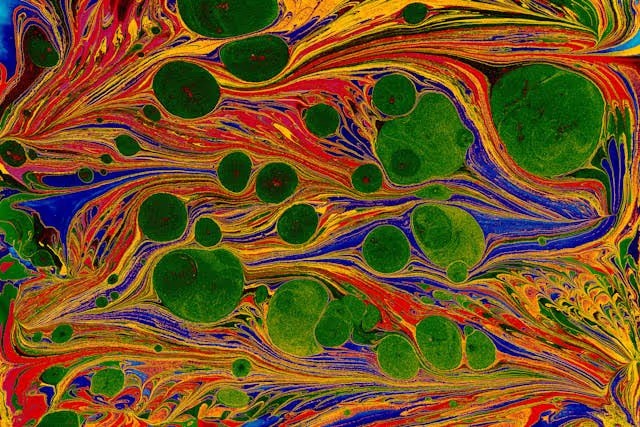Understanding the Impact of Drugs on Brain Cells
When it comes to drug use, it’s crucial to understand the potential consequences on brain health. Drugs have the ability to cause irreversible damage to brain cells, leading to various long-term impairments. In this section, we will explore the introduction to drug-induced brain cell damage and the importance of identifying harmful drugs.
Introduction to Drug-Induced Brain Cell Damage
Drug-induced brain cell damage refers to the harmful effects that certain substances can have on the structure and function of brain cells. Different drugs can impact the brain in various ways, leading to significant alterations in brain chemistry and communication.
The brain is a complex organ composed of billions of cells called neurons, which play a vital role in transmitting information throughout the body. Drugs can interfere with the normal functioning of these neurons, disrupting the delicate balance of chemicals and electrical signals within the brain.
Importance of Identifying Harmful Drugs
Identifying which drugs have the potential to cause irreversible brain cell damage is crucial for several reasons. Firstly, it helps individuals make informed decisions about their substance use and understand the potential risks involved. By knowing which drugs are more likely to cause harm, individuals can take steps to protect their brain health and overall well-being.
Secondly, identifying harmful drugs allows healthcare professionals to provide accurate information and guidance to users and those at risk of substance abuse. It enables them to educate the public about the specific dangers associated with certain substances and promote preventive measures.
To gain a deeper understanding of the impact of drugs on brain cells, it’s essential to explore the specific substances known to cause irreversible damage. In the next section, we will take a closer look at three such drugs: methamphetamine, cocaine, and alcohol. By examining their effects on the brain, we can better comprehend the mechanisms underlying brain cell damage and the long-term consequences that may arise.
Drugs Known to Cause Irreversible Brain Cell Damage
Certain drugs have been identified as culprits for causing irreversible damage to brain cells. Understanding the potential harm they can inflict is crucial for raising awareness and promoting informed decisions regarding substance use. The following drugs are known to have detrimental effects on brain cells:
Methamphetamine
Methamphetamine, commonly known as meth, is a highly addictive stimulant drug that can have severe consequences on brain health. It acts by increasing the release and blocking the reuptake of dopamine, a neurotransmitter involved in pleasure and reward pathways. Prolonged use of methamphetamine can lead to significant damage to brain cells, particularly in areas associated with memory, decision-making, and emotion regulation.
Cocaine
Cocaine is another potent stimulant drug that can cause irreversible damage to brain cells. Similar to methamphetamine, cocaine increases the levels of dopamine in the brain, resulting in intense euphoria and increased energy. However, the repeated use of cocaine can disrupt the normal functioning of brain cells and impair various cognitive functions, such as attention, learning, and memory.
Alcohol
While alcohol is legal and widely consumed, excessive and prolonged alcohol use can have detrimental effects on brain cells. Chronic alcohol abuse can lead to alcohol-related brain damage (ARBD), which includes conditions such as alcoholic dementia and Wernicke-Korsakoff syndrome. Alcohol damages brain cells by interfering with neurotransmitter balance, causing inflammation, and disrupting the normal structure and function of brain tissue.
It is important to note that these drugs are not the only substances that can cause irreversible brain cell damage. There are other substances, such as certain prescription drugs and inhalants, that can also have detrimental effects on brain health. Understanding the risks associated with these substances is crucial for making informed decisions and seeking appropriate support and treatment if needed.
The consequences of drug-induced brain cell damage extend beyond immediate effects. In the next sections, we will explore the mechanisms through which these drugs inflict damage on brain cells, as well as the long-term consequences that individuals may experience as a result.
Mechanisms of Brain Cell Damage
To understand how certain drugs can cause irreversible damage to brain cells, it is important to explore the underlying mechanisms involved. Two significant factors contributing to this damage are the neurotoxic effects of drugs and their impact on neurotransmitters.
Neurotoxic Effects of Drugs
Many drugs, especially those that are highly addictive or illicit, have neurotoxic properties. Neurotoxicity refers to the ability of substances to directly harm or destroy brain cells. This damage can occur through various mechanisms, including oxidative stress, inflammation, and disruptions in cellular signaling pathways.
The neurotoxic effects of drugs can lead to the death of brain cells, particularly neurons. Neurons are the fundamental units of the nervous system responsible for transmitting electrical signals and facilitating communication between different parts of the brain. When these cells are damaged or destroyed, it can have profound effects on brain function and overall health.
While the specific neurotoxic effects vary depending on the drug and its mechanism of action, it is important to note that prolonged and excessive drug use can increase the risk of irreversible brain cell damage.
Impact on Neurotransmitters
Neurotransmitters are chemical messengers in the brain that help regulate various functions, including mood, cognition, and behavior. Drugs can interfere with the normal functioning of neurotransmitters, leading to imbalances and disruptions in their release, reuptake, or signaling processes.
For example, drugs like methamphetamine and cocaine increase the release and inhibit the reuptake of neurotransmitters such as dopamine, norepinephrine, and serotonin. This flood of neurotransmitters can overload the receptors and disrupt normal communication between brain cells. Over time, this can contribute to the damage and death of neurons.
The impact on neurotransmitters can have far-reaching consequences, affecting not only the immediate effects of drug use but also the long-term functioning of the brain. Imbalances in neurotransmitter levels can lead to changes in mood, cognition, and behavior, and may contribute to the development of addiction and mental health disorders.
Understanding the mechanisms of brain cell damage caused by drugs is essential for raising awareness of the potential risks associated with substance abuse. By recognizing the neurotoxic effects of drugs and their impact on neurotransmitters, individuals can make informed decisions about their health and seek appropriate support and treatment if needed.
Long-Term Consequences of Brain Cell Damage
When brain cells are damaged by certain drugs, it can have long-lasting effects on an individual’s cognitive function and behavior. Understanding these consequences is crucial in highlighting the importance of avoiding or seeking help for drug abuse. Let’s explore two significant long-term consequences of brain cell damage: cognitive impairment and behavioral changes.
Cognitive Impairment
One of the most significant consequences of drug-induced brain cell damage is cognitive impairment. This refers to a decline in cognitive abilities, including memory, attention, and problem-solving skills. Different drugs can affect specific cognitive functions, leading to varying degrees of impairment.

The extent and severity of cognitive impairment can vary depending on factors such as the duration and intensity of drug use. Prolonged drug abuse can lead to structural and functional changes in the brain, resulting in persistent cognitive deficits even after discontinuing drug use.
Behavioral Changes
Drug-induced brain cell damage can also lead to significant behavioral changes. These changes may manifest as alterations in mood, emotions, and overall personality. Some drugs can disrupt the brain’s reward system, leading to compulsive drug-seeking behavior and a loss of control over drug use.

These behavioral changes can have a profound impact on an individual’s personal and social life. They may experience difficulties in maintaining relationships, holding a job, or engaging in daily activities.
It’s important to note that the specific consequences and severity of brain cell damage can vary depending on several factors, including the type of drug, dosage, frequency of use, and individual susceptibility. Early intervention and treatment can help mitigate the long-term consequences and improve outcomes for individuals struggling with drug-induced brain cell damage.
By understanding and raising awareness about the potential cognitive impairment and behavioral changes associated with drug-induced brain cell damage, we can emphasize the importance of prevention, education, and seeking support and treatment for drug abuse.
Preventing and Managing Brain Cell Damage
When it comes to protecting our brain cells from the harmful effects of drugs, prevention and proper management are key. By raising awareness and educating ourselves about the risks associated with drug use, we can take proactive steps to safeguard our brain health. Additionally, seeking support and treatment can play a crucial role in mitigating the damage caused by drugs.
Awareness and Education
One of the most effective ways to prevent brain cell damage from drugs is through awareness and education. By understanding the risks and consequences associated with drug use, individuals can make informed decisions and avoid substances that are known to cause irreversible harm.
Educational programs, public campaigns, and community outreach initiatives can provide valuable information about the specific drugs that are particularly damaging to brain cells. These efforts help to dispel myths and misconceptions surrounding drug use while promoting the importance of making safe and responsible choices.
Seeking Support and Treatment
For those already struggling with drug addiction or experiencing the consequences of brain cell damage, seeking support and treatment is crucial. Professional assistance can help individuals navigate the journey towards recovery and minimize further damage to their brain cells. It’s important to remember that addiction is a complex disease, and recovery often requires a comprehensive approach that addresses both the physical and psychological aspects of substance abuse.
Support groups, counseling services, and rehabilitation programs provide a safe and understanding environment for individuals to address their drug use and its associated effects. These resources offer guidance, encouragement, and strategies to overcome addiction and foster brain healing. Many of these programs utilize evidence-based treatments, such as cognitive-behavioral therapy (CBT) and motivational interviewing, which have shown promising results in helping individuals achieve and maintain sobriety.
It’s important to note that seeking treatment should not be seen as a sign of weakness, but rather as a proactive step towards reclaiming one’s health and well-being. Many people struggle with the stigma associated with addiction, which can prevent them from seeking the help they need. However, it’s crucial to understand that addiction is a medical condition, not a moral failing, and seeking treatment is a courageous and responsible decision.
With the right support system and treatment plan, individuals can regain control of their lives and work towards repairing the damage caused by drugs. This process often involves a combination of medical interventions, therapy, and lifestyle changes. For example, some treatment plans may include medications to manage withdrawal symptoms or address co-occurring mental health disorders, while others may focus on developing coping skills and building a strong support network.
Recovery is a journey, and it’s important to recognize that setbacks can occur. However, with persistence and the right support, individuals can overcome these challenges and continue on their path to healing. Many treatment programs offer aftercare services to help individuals maintain their progress and prevent relapse once they’ve completed initial treatment.
In conclusion, preventing and managing brain cell damage caused by drugs requires a multifaceted approach. By promoting awareness and education, we can empower individuals to make informed choices and avoid substances known to be harmful. This includes providing accurate information about the short-term and long-term effects of drug use on brain health, as well as dispelling common myths and misconceptions about addiction.
Additionally, seeking support and treatment can provide the necessary tools and resources for recovery and brain healing. It’s crucial to create an environment where individuals feel comfortable reaching out for help without fear of judgment or discrimination. This may involve advocating for policies that support access to addiction treatment and mental health services, as well as working to reduce the stigma associated with substance use disorders.
Remember, it is never too late to seek help and protect your brain health. Whether you’re struggling with addiction yourself or supporting a loved one, there are resources available to assist you on the journey to recovery. By taking action and seeking support, individuals can not only protect their brain cells but also improve their overall quality of life and build a brighter future.
Sources
https://americanaddictioncenters.org/alcohol/risks-effects-dangers/brain
https://stepstorecovery.com/blog/which-drugs-kill-brain-cells/
https://www.addictioncenter.com/drugs/marijuana/kill-brain-cells/




